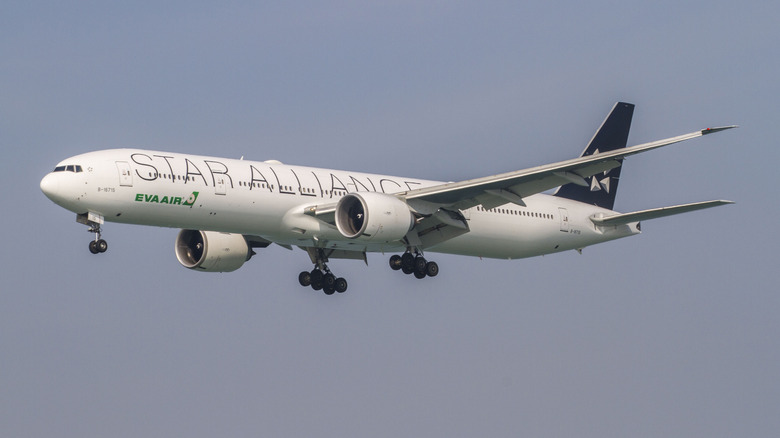What To Consider Before Signing Up For An Airline Credit Card
If you're a frequent flier, it's likely that the idea of applying for a travel credit card has crossed your mind. While there are plenty of cards out there that are beneficial to those who spend more time on the road than in the comfort of their own homes, one of the most common routes taken is applying for an airline credit card. Airline credit cards are a great option for those who are loyal to a particular airline. Sometimes, however, airline credit cards come with high interest rates, annual fees, and the perks and benefits might seem unclear. Well, is getting an airline credit card worth it? That question is nuanced, and there are many factors to consider.
Some of the most popular travel-perks-induced credit cards are Delta SkyMiles Gold American Express card, United Explorer Card, JetBlue Plus Card, and Southwest Rapid Rewards Card. Airline cards aren't the only option for those who travel frequently, but they're certainly one to consider.
Factors To Consider
If you're thinking of signing up for a travel credit card, the first question will be, which card is right for you? This heavily depends on a few factors: how frequently you travel, if you're loyal to one airline, how much you're willing to pay in annual fees and interest rates, and most importantly, that you have the bandwidth to pay a credit card off.
Let's start with travel frequency. Do you travel at least two times a year? If so, getting a travel credit card is probably worth it. If you primarily travel via airplane as opposed to car, train, or bus, it's wise to look into a card that includes a lounge pass. Think of how much money you spend at an airport; a lounge pass included in your travel card will provide options for "free" (the price is often weaved into the credit card) food and beverage at airports around the globe. Options like the Delta SkyMiles American Express and United Club Infinite Card are worth looking into in this scenario.
Additionally, you'll want to consider your capacity to pay the card off. Many cards come with an annual fee, sometimes upward of $600. While those cards come with great perks, credit cards are useless if they're going to rack up unnecessary debt just to get some "points and miles" out of them. What's your boundary on interest rates? These are all questions worth asking yourself prior to signing up for a travel card.
Perks To Airline Alliances
If you sign up for a United credit card, you'll have a United MileagePlus account (which you can sign up for free without a credit card), where you can rack up points and miles for airlines with Star Alliance. These airlines include but are not limited to Turkish Airlines, EgyptAir, Air Canada, Avianca, Air New Zealand, Ethiopian Airlines, and more. Are you more of a Delta fan? Your alliance is SkyTeam, which includes airlines like Air France, AeroMexico, KLM, ITA Airways, Kenya Airways, Korean Air, and more.
If you're not devoted to a particular airline, perhaps an airline credit card isn't the way to go, and a general travel card is your better bet. Despite the hefty annual fee ($550), Chase Sapphire Reserve is one of the best travel credit cards out there. Included in the annual fee is Priority Pass access (which would typically be $99/year), 1x points on everyday purchases toward travel, 3x points toward travel when making travel-related purchases, access to the Chase travel portal, TSA Pre-check fee waived ($78 for a five-year membership), Global Entry Fee waived ($100 for a five-year membership), to name a few. In sum, that annual fee easily pays itself off as long as you are a frequent traveler.


